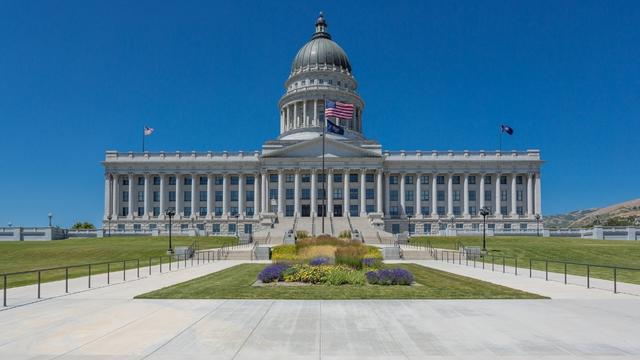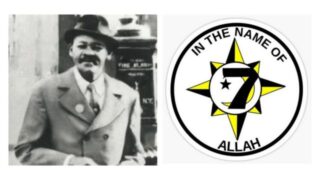Protecting the secret of the confession only when the penitent confesses to one minister creates an unjustified privilege for some religions.
by Massimo Introvigne
Article 4 of 4. Read article 1, article 2, and article 3.


As we have seen in previous articles of this series, Section 1032 of the California Evidence Code, which protects the confessional privilege only if the confession is rendered by one penitent to one religious minister “in the presence of no third person,” is open to the objection that it creates a privilege for those religious organization that adopt the one-on-one model of confession typical of the Catholic Church.
In the previous article, we have seen that courts in other states have protected the confessional privilege even when relatives of the penitent were present during the confessional communication. One further such case was “State v Martin,” decided by the Supreme Court of Washington State on May 6, 1999.The defendant was accused of having murdered his three-month-old infant son by violently shaking him.
The Supreme Court had to examine the position of Pastor Rich Hamlin of the Evangelical Reformed Church of Tacoma, who was also an officer of the Christian organization Youth for Christ. Invoking the confessional privilege, Hamlin stubbornly refused to testify about the content of a confession he had received from the defendant, and was held in contempt by the trial court. The Court of Appeal found in favor of the pastor, and the State asked the Supreme Court to rule on the issue.
The trial court believed that the confessional privilege did not apply for two reasons. First, the defendant’s mother was present during his confession. Second, Pastor Hamlin discussed the confession’s content with two colleagues from Youth for Christ, seeking their advice. In confirming that the mother’s presence did not exclude the confessional privilege, the Supreme Court issued an opinion similar to those discussed in the previous article of this series. It also stated that the (confidential) discussion of the confession with colleagues of the same religious organization did not make the confessional privilege inapplicable either.
Very detailed discussions of the issue are found in two cases concerning confessions rendered by members of the Church of Jesus Christ of Latter-day Saints (LDS), popularly known as the Mormon Church. On March 4, 1994, the Supreme Court of Utah decided the case “Scott v. Hammock,” where the LDS Church was an intervenor. The context was a civil case against a man accused, and already convicted by a criminal court, of having sexually abused his two stepdaughters, filed by one of the girls.
The man had confessed what he did to his Mormon bishop in three conversations, in one of which his wife was present. Both the defendant and the LDS Church admitted that the encounters were not “penitential,” since the man was not confessing his sins seeking God’s forgiveness. However, they argued, and the Supreme Court agreed, that a communication can be “nonpenitential” and still qualify as a “confession,” protected by the confessional privilege.


The Supreme Court noticed that the plaintiff seemed to imply that confessional privilege protects only “a formal, specific type of religious practice, such as occurs in the Catholic Church.” The justices agreed with the LDS Church’s argument that “a broader construction is necessary to avoid discriminating against religious denominations that do not require formal confessions, but whose doctrine and practice require their clerics to provide confidential spiritual counseling, guidance, and advice to their parishioners. The LDS Church points out that many religious denominations, including a number of Protestant churches, teach that admission of wrongdoing is an important part of their religious doctrine and practice, but have no formal requirement for making admissions of wrongdoing to a cleric. In addition, the LDS Church argues that whether or not formal penitential confessions are required by a denomination, the role of a cleric in providing spiritual guidance and counseling cannot properly be limited to formal confessions and the law ought to recognize that fact. With respect to its own doctrine and practice, the LDS Church states that its members are required to engage in a process of repentance by which confidential admissions of wrongdoing may be made to a bishop or stake president at the beginning, during, or at the end of the repentance process and that confidential nonpenitential communications between a bishop or stake president and members of the LDS Church are an essential part of that process. Indeed, the LDS Church asserts that according to its course of discipline, it is impossible to separate a specific ‘penitential confession’ from the process of providing religious and spiritual counseling, guidance, and admonishment intended to persuade a church member to forsake and make amends for wrongful conduct.”
It would clearly be against the U.S. Constitution, the Utah justices stated, to grant the confessional privilege only to the Catholic Church and other religions that adopt the model of a penitential confession whose aim is to seek forgiveness from God through absolution from a priest during a one-on-one communication, which would exclude the presence of a wife or others. There would be “the risk that the law would be discriminatorily applied against religious practices of churches on the basis of theological differences… It would not be appropriate for a court to be asked to accord greater verity or importance to one denomination’s sacraments, practices, or disciplines over those of another.”
On June 1, 2004, the Court of Appeals of the State of Washington, Division 1, decided “Doe v. Corporation of the President of the Church of Jesus Christ of Latter-Day Saints,” perhaps the most important case to be compared to the California “in the presence of no third person” rule. The Court sustained the appeal of the LDS Church against an order by the trial court to release a document called “Report of Church Disciplinary Action” (RCDA) that included the confessions of a man accused of having abused his two stepdaughters. The context was a civil action for damages against the stepfather and the LDS Church itself filed by the guardian ad litem of the two girls.
The guardian argued that the confession was not protected by the confessional privilege because, rather than to a single priest or pastor, it had been rendered to the spectacular number of eighteen members of the stake’s (the LDS equivalent of a Catholic diocese) disciplinary council, with a written report prepared and submitted, although respecting strict rules of confidentiality, to the LDS Church headquarters in Salt Lake City.
The Court of Appeals maintained that the problem is not whether the recipient of the confession was one person, eight, eighteen, or even eighty. What is a “confession,” and is thus protected by confessional privilege, is not a matter secular authorities can decide without violating basic principles of religious liberty enshrined in the U.S. Constitution. Precedents had already established that “the determination of the definition of ‘confession’ is to be made by the church of the clergy member,” not by secular judges. “The religious entity, and not the courts, should decide what types of communications constitute confessions within the meaning of a particular religion.”


“Cases from other jurisdictions, the Washington judges noted, also recognize the need to respect doctrinal differences among religions when analyzing the clergy-penitent privilege.” The question, thus, when dealing with a LDS “confession,” is not what the judges think a “confession” is but what the LDS Church defines as “confession.” Once the Church told the court that the man’s confession was received “in accordance with LDS Church doctrine, as outlined in the ‘Church Handbook of Instructions,’” the secular judges could only apply the confessional privilege. They could not second-guess the LDS Church and presume to know better than the church itself what a “confession” is according to LDS theology or how the “Church Handbook of Instructions” should be interpreted.
One can object that Utah or Washington and other states have statutes about the confessional privilege that are different from Section 1032 of the California Evidence Code, which explicitly denies the privilege to confessions rendered “in presence of a third person” in addition to the penitent and the religious minister. However, the decisions I have quoted are not based on state laws only but also quote the First Amendment to the U.S. Constitution, not to mention that the U.S. has also signed and ratified international conventions protecting freedom of religion or belief.
Clearly, the first legal protection of the confessional privilege was created having in mind the Catholic confession. However, in most U.S. states, courts have understood that restricting the confessional privilege to Catholic-style one-on-one confessions would be against religious liberty and the First Amendment. The “confessions” rendered to a 18-person LDS disciplinary council, put in writing and forwarded to the church headquarters of the 2004 Washington case, or Scientology auditing, where the auditor shares the “confession” with a Case Supervisor and other members of a ministerial team and takes notes kept in a “Preclear Folder” stored under lock and key, do not deserve less protection than Catholic or Eastern Orthodox one-on-one confessions where taking notes is forbidden. Arguing otherwise would create an unjustified and unconstitutional privilege for certain forms of religious confession, and as a consequence for the religious organizations that practice them.









